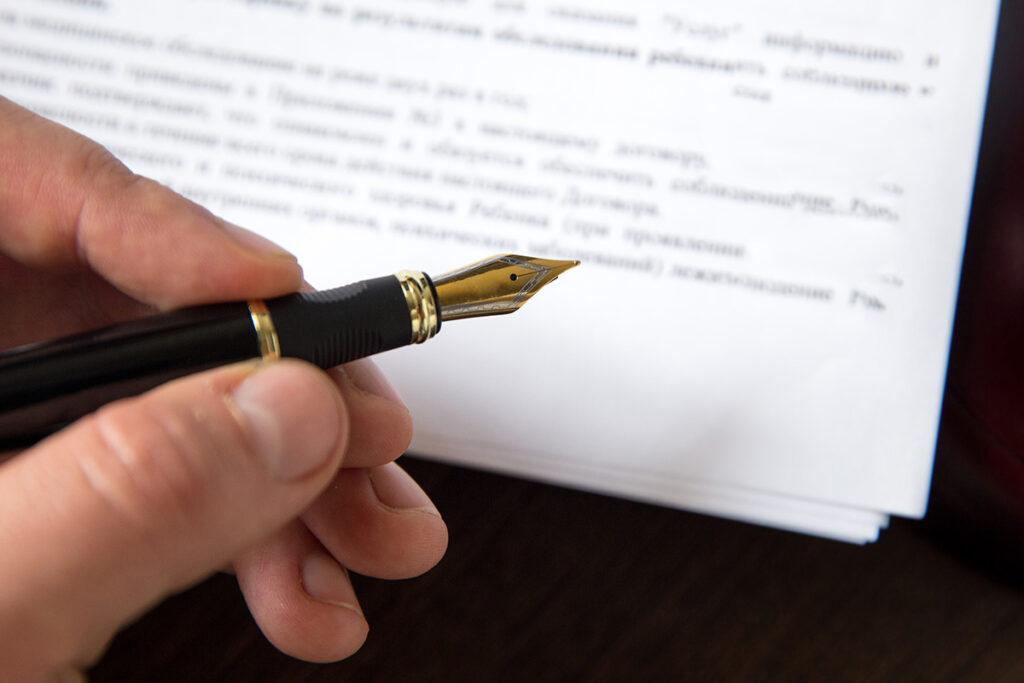Do You Need an Estate Inventory, and Who Prepares It?
When an estate goes through probate in Minnesota, an estate inventory document must be prepared. This is true whether or not there is a will. Depending on the size and complexity of an estate, the estate inventory can be a lengthy document.
When Do You Take an Estate Inventory?
An estate inventory, which is also referred to as a probate inventory, must be completed no later than nine months after a person passes away or six months after a personal representative is appointed by the probate court — whichever is later. You can complete the inventory before this time period; however, since there may be a lot of research involved and you might need to work with numerous appraisers, you may want to avoid rushing the process to ensure accuracy.
Who Is Responsible for the Estate Inventory?
The personal representative must take the estate inventory, prepare the required documents, and deliver and file those documents.

It’s important to note that an executor named in the will must be approved by the court before they are officially considered to be the personal representative. So, you should not begin the inventory until you have requested to be named as the personal representative and accepted the court’s appointment as such.
What Must Be Included in the Estate Inventory?
According to Minnesota law, the estate inventory should include a listing of the property that the deceased person owned at the time of his or her death. This should be a “reasonably detailed” list, and for every item, the inventory should also state:
- The fair market value of the asset as of the date of the person’s death
- Whether the asset is encumbered, such as with a lien
- Names and addresses for appraisers, if applicable
Note that the estate inventory does not need to detail every single item the deceased owned. Typically, you want to include items of monetary or sentimental value. That may include antiques, clothing, collectibles, jewelry, and other household items as well as financial accounts, real estate, vehicles, boats, insurance policies, and business interests.
Common Estate Inventory Steps
While each estate is unique, there are some common steps to follow to complete the estate inventory.
Marshaling the Assets
The personal representative must begin by researching the estate to determine what (and where) all the assets are. This can’t be a cursory overview but must be a careful, diligent search.

Some tips for understanding what assets an estate might include are:
- Begin with the will. Hopefully, the deceased listed many of their more valuable assets in the will. This helps you create a list that includes important assets.
- Review other documents. Search through filing cabinets, desks, and other document storage to find financial statements, bills, insurance documents, tax returns, titles, and deeds. These can all point to potential assets.
- Gather mail for a month or two. Going through mail sent to the deceased for a month or two can help you understand the current financial status of the estate as well as identify assets.
- Contact the deceased’s attorney. Ask the person’s estate planning attorney if they have any information about assets.
Appraising the Assets
Once you have a list of assets, seek information about their value. The value of assets such as bank accounts or stocks may be easy to understand. If you’re dealing with real property or assets such as fine art, you may need to get a knowledgeable or certified appraiser to provide a valuation.
Completing the Documents
Complete the documents required for the estate inventory. You may need to include a signed document summarizing the value of assets in the estate and attesting to the truth of the information you’re submitting.

You may also need to include attachments describing real estate, stocks, bonds, securities, bank accounts, cash, outstanding debts owed to the estate, and other property. In many cases, the estate inventory documents also include details about mortgages and other debts owed by the estate.
Serving and Filing the Documents
Once the personal representative has completed the estate inventory, they must deliver copies of it to the appropriate people and file it with the probate court. Copies must be mailed or delivered to:
- A surviving spouse (if he or she is not the personal representative completing the estate inventory document)
- Heirs or beneficiaries to the estate—anyone who is intended to receive distributions from the estate other than creditors, including those heirs listed in the statute (even if they do not get anything under the will document)
- Creditors and other persons with an interest in the matter—but only if those persons request the document
Get Legal Help Carrying Out Your Personal Representative Duties
As you can see, creating an estate inventory can be a daunting task that requires a lot of time and attention. Making a mistake on this inventory can create headaches down the line in the probate process, so it’s also important to do the work accurately. Luckily, if you’re appointed as a personal representative to an estate, you don’t have to do everything yourself.
The right Minnesota probate lawyer can help you complete the personal inventory. They can also guide you through the entire probate process and consult on issues such as disputes between heirs that might arise.
Schedule a call with our probate team at the Stone Arch Law Office to find out how we can help you with probate matters.





